Actualités
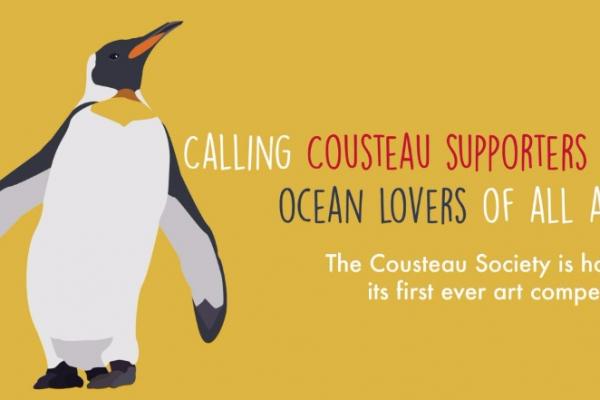
The Cousteau Society is holding its first ever art competition!
Take this opportunity to show off your art skills for the chance to have your artwork featured on the cover of the summer edition of Cousteau Kids!
Springtime is baby time for many in the animal world, and the ocean is full of adorable aquatic infants. We want you to create a picture of your favorite marine animal as a cuddly, squishy, fuzzy, slimy, lovable baby.
The winner will receive:• 10 copies of the magazine with their winning artwork• A feature on our website• A feature in one copy of our direct mail solicitationSelect runners-up will be featured on the inside of the magazine and given two free copies.
Send submissions unfolded in a sturdy 9×12 envelope to:4 East 27th StreetP.O. Box 20321New York, NY 10001
Not subscribed to Cousteau Kids yet? Sign up here to get started on your underwater adventure!
Please be sure to include the artist’s full name and age (if under 18). All artwork needs to be your original imagery. Submissions must be received no later than February 9th, 2016* to be considered. Artwork should be 8.5×11 in size (no lined paper, please).
Good luck and have fun getting creative!
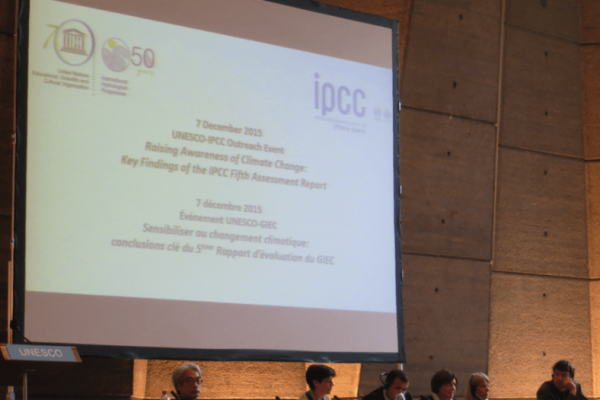
The Cousteau Society participated in the IPCC event hosted by UNESCO-IHP
During the COP21, IPCC and UNESCO-IHP promoted a side event to discuss the key findings of the 2014 Report on Climate Change with special session about Science and Policy dialogue and a seminar on education and climate change. The Cousteau Society was represented by Ms. Marcella Silva, Education and Communication Project Manager, who pointed out the question about the special report on ocean, in order to have the update of its current development. The Secretary of IPCC, Mr. Bruce Stewart responded saying that many countries already agree with its adoption, such themes have been discussed during the 41st IPCC session. He highlighted the importance of this report but added that for its establishment, IPCC demands more volunteer research from scientists, as a source of data.
What is the importance of an IPCC Ocean special report?
The IPCC (International Panel on Climate Change) is a scientific body under the auspices of the United Nations (UN). It reviews and assesses the most recent scientific, technical and socio-economic information produced worldwide relevant to providing a climate change report. The panel does not conduct any research nor does it monitor climate related data or parameters. Thousands of scientists from all over the world contribute to the work of the IPCC on a voluntary basis.
The authors producing the reports are currently grouped in three working groups – Working Group I: the Physical Science Basis; Working Group II: Impacts, Adaptation and Vulnerability; and Working Group III: Mitigation of Climate Change. The IPCC Fifth Assessment Report (AR5) which increased its focus on the oceans.
Because of its scientific and intergovernmental nature, the IPCC embodies a unique opportunity to provide rigorous and balanced scientific information to decision makers.
The Oceans have a essential role to regulate atmospheric conditions, to stabilize global temperature, and to provide food and resources to hundreds of millions of people throughout the world. It is however heavily influenced by the rapid rise of carbon dioxide and other greenhouse gases in the atmosphere, putting marine ecosystems, people, and industries at risk.
In the meeting in Nairobi in February 2015, Monaco presented a proposal for an IPCC special report on oceans, noting the multiple beneficiaries of such a report, including the UNFCCC, the Convention on Biological Diversity and the UN Convention on the Law of the Sea. Such a report would send a strong signal regarding the importance of oceans, and should address
regional aspects. Countries such as Peru, India, Malawi and Algeria supported by Madagascar, Chad, Egypt, Mali, Saudi Arabia, Jordan, Spain, the Philippines, Kuwait, added proposing a special report on the link between climate change and desertification.
Japan suggested specific themes that could be pursued, such as ocean acidification and sea-level rise, and highlighted the importance of education programmes on oceans, such as UNESCO-IHE Institute for Water Education and the World Climate Research Programme.
During the Ocean Forum day in COP21, the Environment Minister of France, Ms. Segolene Royal also supported the adoption of the Special Report on Ocean.
Looking forward to the COP22 in Marrakesh, the IPCC in April 2016 will have the opportunity to discuss the inclusion of a Special Report on the Ocean during the drafting period of the Evaluation Report on Climate Change AR6.
Source : IISD Reporting Services, IPCC

The Cousteau Society follow the resolutions of the COP21 in the Streets among the civil society
The 2015 United Nations Climate Change Conference, COP 21 was held in Paris, France, from 30 November to 12 December 2015.
The agreement approved in Paris is not yet the best achievement and it is a long way from answering all the demands. But it is definetely an important step toward a post-carbon society. We can rejoice that the 1,5°C is clearly mentioned and the target of zero emissions by the second half of the century as well. This resolution places the fossil fuel industry as part of History. We now leave the COP21, peacefully supported by civil society engagements, who care about our blue planet and who are confident that change is possible !
Is this sufficient to make a sustainable society ? Of course not ! We need to consider not only carbon footprints, but also to solve the 6th mass extinction of the species that we are causing. We need to not only allow the big players, the usual suspects, to make more money and speculate on the green and post carbon related high technologies, but to solve the dreadful problem of social inequality. The nations which have caused most of the climate problems are still promising too little to the people who suffer from climate change in developing countries. But still, despite all the challenges we still have to face, something happened in Paris during COP21 that will be part of History. The Cousteau Society walked with the civil society through the streets of Paris on the 12th of December during the final annoucement of COP21. It was great to see the beauty of diverse people, caring for our planet and for their brothers and sisters. People from the whole world, different cultures, different arguments, however the borders were vanished for a while, the Parisian streets were South American, Asian, European, African, Australian, from the Ocean, the Polar Areas and from the rain forests! And if there is hope, it is certainly promoted by those beautiful and connected hearts, who walked together side by side to create the fairer and greener society that we need.
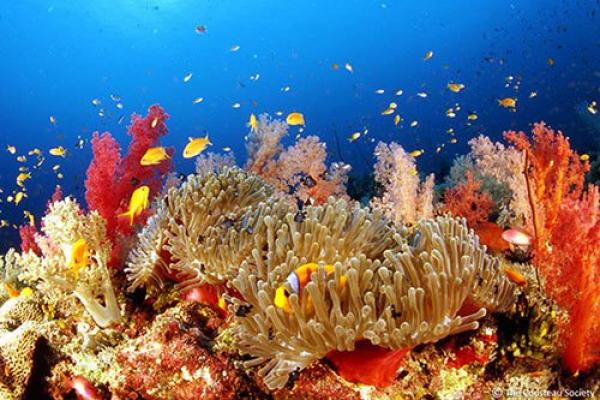
The Cousteau Society in Dubai for the Convention on Biological Diversity
The Cousteau Society, represented by Tarik Chekchak, takes part to an international workshop organized by the Convention on Biological Diversity (CBD), in Dubai from the 20 to the 25 of April. The Cousteau Society goal is to describe and identify with CBD significant marine areas deserving the greatest attention of the United Nations. The workshop focus on the north-west indian ocean région and adjacent gulf areas, as the Red Sea and the Aden gulf. Dr Dirar Hassan Nasr, representative of Sudan and Tarik Chekchak, feature the importance of the Sudanese coast and the Socotra archipelago (Yemen).
The CBD is one of the three international treaty signed during the Rio Summit in 1992 (Convention on Climate Change and Convention to combat desertification). The Conference of the Parties, its governing body, advances implementation through the decisions adopted at its periodic meetings. At the outcome of the tenth meeting in Nagoya, the signatory countries formulate a Strategic Plan for Biodiversity with the purpose of safeguarding biodiversity and enhance its benefits for people. Twenty objectives, so-called the Aichi Biodiversity targets, will have to be achieved by the end of 2020. To make this plan concrete, several regional workshops will be hold to draw up the inventory of ecologically or biologically significant marine areas (EBSAs).
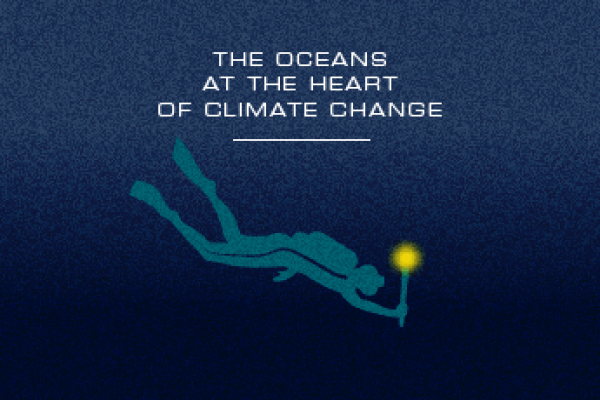
The oceans at the heart of climate change
On the occasion of the 2015 Paris Climate Change Conference, The Cousteau Society will provide you with keys to understance the importance of ocean in climate change. Data visualisations will be available regulary on our website. This month, discover the crucial role of oceans in regulating the excess heat induced by greenhouse gases.
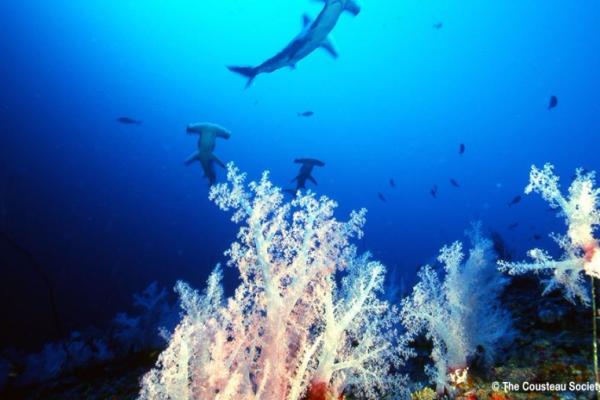
Ecuador seized around 200000 shark fins
Ecuador seized around 200,000 shark fins and arrested three suspected poachers at the country’s main fishing port, the government said on Wednesday. Ecuadorian authorities reported that at least 300,000 sharks were killed by the traffickers. This is in one of the most serious environmental crimes reported in the country in years, despite ecuadorian laws prohibiting shark fishing since 2007.
Shark finning refers to the removal and retention of shark fins while the remainder of the living shark is discarded in the ocean. Coveted in Asia for medicinal uses and as a delicacy, shark fins are among the most expensive seafood products, commonly retailing at US$700 per kg.*
Despite international support for a ban on cutting off fins (100 countries in 2014), many countries continue to practice shark finning. About 30 % of sharks are fished for their fins (this data is difficult to ascertain because of illegal fishing). This practice is considered as the major cause of the global decline in shark numbers. **. Populations have declined by 90 % worldwide and one in three shark species is threatened with extinction ( IUCN – 2003). The Cousteau Society is working towards the resolution of this issue by developing a project to protect shark populations in the Red Sea: Project Sharks and Rays of the Red Sea.
Source :
* Stefania Vannuccini, « Shark utilization, marketing and trade. FAO Fisheries Technical Paper. No. 389. Rome », Fisheries and Aquaculture Department – FAO, 1999** P. Deynat, Requin : entre menaces et espoirs, Apnéa, 2010, p. 46-50.
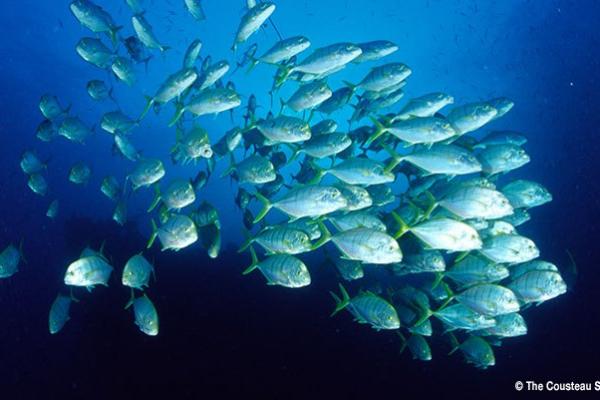
The World Ocean Summit 2015
The third World Ocean Summit will be held in Lisbon, on June 5th 2015. Pierre-Yves Cousteau, IUCN marine program officer, will represent IUCN project. The conference will focus on « the blue economy ». This emerging concept is based on reconciling the notions of economic growth and environmental protection. The global ocean, like the other ecosystems, is regarded as a source of goods and services to manage sustainably.
Much economic activity in the ocean remains based on unsustainable over-exploitation or pollution. A trend that could be countered thanks to the World Ocean Summit initiative. Indeed, during the second instance, the notion of sustainable ocean economy was clarified and the governance frameworks required to enable it was considered. The third summit represents the next step where hundreds of global leaders, business, governments and the international ocean community, will gather and explore realistic solutions. An answer to this question could be outlined : how can we make the transition from a conventional ocean economy to a new ‘blue’ economy?
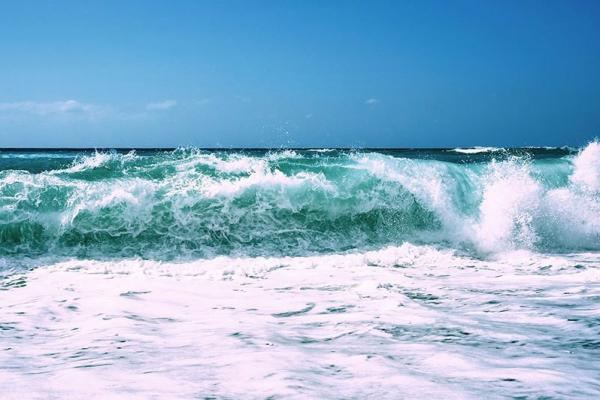
World Oceans Days – UNESCO
In honor of the United Nations World Oceans Day, celebrated each year on June 8th 2015, the Intergovernmental Oceanographic Commission of UNESCO (IOC-UNESCO) will organize a full day dedicated to the ocean and its link to the climate system. This event will bring together scientific, political decision-makers and members of the civil society. Several workshops and plenary sessions are planned focusing on the impacts of climate change on the ocean and its essential role into the phenomenon.
Organized in the lead-up to the 2015 Paris Climate Conference (COP21), this event aims to mobilize several stakeholders working on the topic in order to bring out actions and strategies to mitigate climate change and its socioeconomic impacts. Key recommendations from World Oceans Day will be transmitted to the negotiating parties, experts and observers attending the Bonn Climate Change Conference in June, in preparation of COP21. The messages will underline how crucial an “ambitious” Paris Agreement is to ensure ocean health.
© UNESCO
For more information:UNESCO websiteOcean and Climate Platform
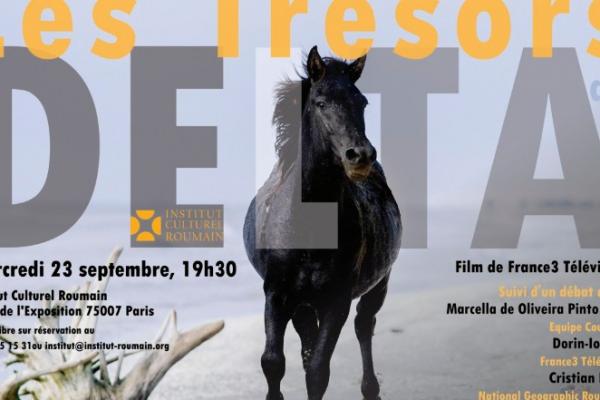
The Cousteau team was present in the debate about the Danube Delta at the Romanian Cultural Institute
The Cousteau Society participated in a debate about the biodiversity of Danube Delta, where the Captain Jacques Cousteau developed a deep research on the beginning of 90’s. Expedition that collaborated with the UNESCO Natural World Heritage Site implementation on 1991.
On board, Jacques Cousteau traveled through Danube River from its source, the Black Forest, in Germany (1991) to the Danube delta in the border of Romania and Ukraine (1992). The two years experience provided a final recommendation report “The Danube, for whom and why? ” and the documentary “Danube” , which is divided in 4 movies about this project of Jacques Cousteau and his team:– Danube 1: Lever de Rideau– Danube 2: Le rêve de charlemagne– Danube 3: Les cris du fleuve– Danube 4: Les débordements du fleuve
The recommendations include a comprehensive approach that link ecology, economy, technology and the social and political systems, which propose the communication between countries due its transboundary areas.The plans of the Cousteau Society has continued in recent years and was recognized by Bucharest in 2007 with the nomination of Francine Cousteau as “Ambassador for the Danube Delta”.
During the event, the Education and Communication Project Manager, Marcella De Oliveira Pinho Silva presented parts of the documentary in a discussion among environmental stakeholders about the importance to preserve the Romanian biodiversity.
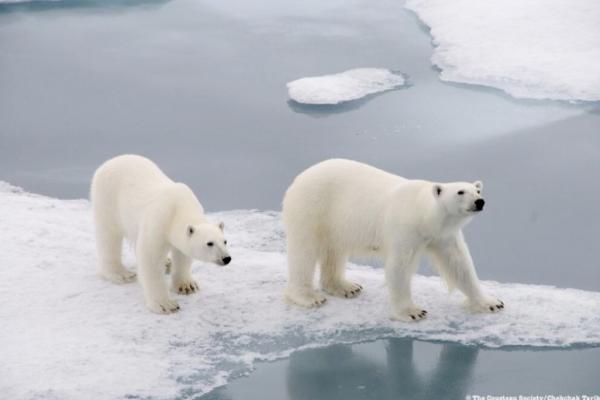
The Cousteau Team in the 3rd Symposium “Polar bears and the Arctic environment“ at UNESCO Headquarters
On the last 26th September, Tarik Chekchak, Director of Science and Environment in The Cousteau Society, mediated a roundtable in the in the 3rd Symposium “Polar bears and the Arctic environment“ at UNESCO Headquarters. The subject How could we imagine cohabitation? approuched the close relations between people and polar bears, but also issues related to the development of the Arctic and the impact of climate change.
The Symposium dedicated to polar bears in the Arctic environment devoted to two fundamental questions: is it possible and do we want to live alongside the polar bears?
During this event the film “Nuits Boréales” was projected and discussed with the participation of its producers.
More information on:
https://vimeo.com/139836284
http://en.unesco.org/events/living-polar-bears
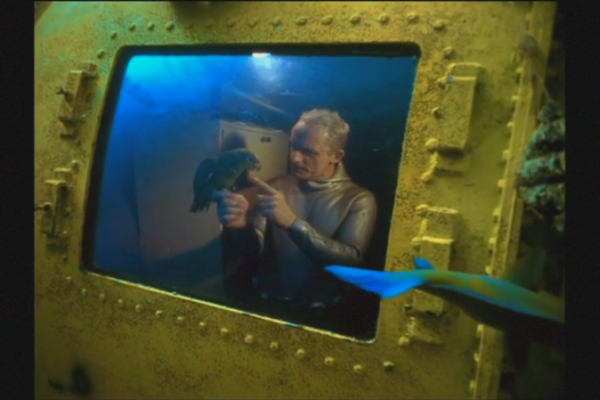
Triste nouvelle: Claude Wesly est décédé
L’équipe Cousteau est triste d’apprendre que Claude Wesly est décédé. Il fût l’un des premiers hommes à vivre et à travailler sous l’eau pendant les expériences “Pré-continent” dans les années 60, et il est décédé aujourd’hui à l’âge de 87 ans. Le monde de la plongée a perdu une légende, un pionnier et un homme chaleureux et amusant, qui avait toujours des mots encourageants.
Tu vas vraiment nous manquer Claude ! Merci infiniment de nous avoir accompagné toutes ces années ! Nous avons partagé avec toi récemment notre joie d’avoir contribué à faire inclure dans un site Patrimoine Mondial de l’UNESCO l’atoll de Shab Rumi, qui au Soudan fut le lieu de tes exploits avec le commandant Cousteau dans le cadre de l’expérience Pré-Continent II.
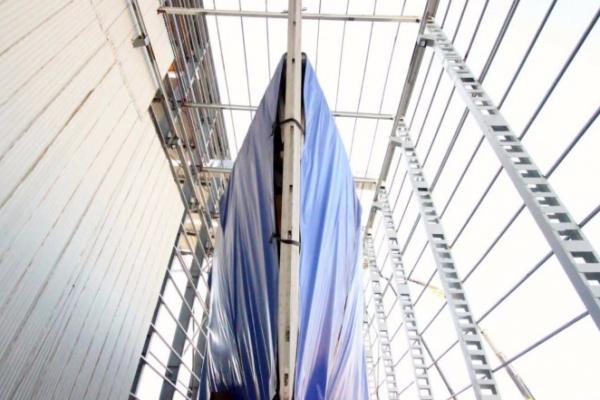
Calypso est mise à l’abri
Le 3 octobre en fin d’après midi Calypso a été installée sur un portique de transbordement . Cette opération délicate s’est terminée vers minuit.